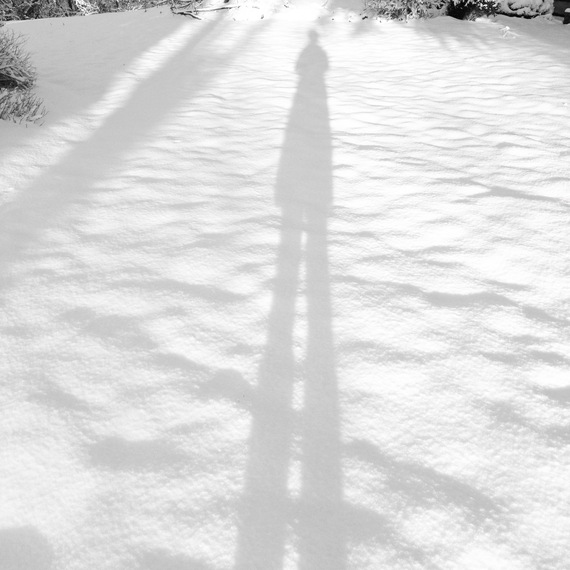Snow is falling at a rapid pace. It blurs my field of vision. It seeps into the inner corners of my eyes. I stand there, still as the landscape, and watch as it sinks tree limbs and collects in crevices like clusters of down. The sky, the air and the earth are all the same shade of white, and for one small moment, I disappear, too.
Prior to a couple of years ago, I never thought of myself as someone who was influenced by the pulls of popular culture. I remember sitting in a Women's Studies class at my liberal arts college and watching the professor showing a slide of a provocative fashion ad. I think it was Versace or something of that sort. She, the professor, was trying to make us see an underlying message of female subordination. But I simply could not, at the time, make the connection between my world and the one where dark-eyed 15-year-old girls, bony and frail, slunk into shadows, erotically positioned. I was quick to brush it off it as feminist hoopla, and I wanted no part of it.
I can't pinpoint it exactly, but somewhere in the lapse of time between when I first gave birth and now, the scales fell from my eyes, and I began seeing things differently. It became clear to me that there are, in fact, messages all over the place. These messages are constantly telling me how to filter my reality, and they are shot at me from nearly every external influence. I've gotten them my entire life from books, in school, through friends, from what I see on television and in magazines, even from family. Sure, they have shaped my impressions on the small matters, like how I wear my hair and how I prefer the cut of my jeans. But their mark is also visible on big matters, too, for instance my ideas about parenting, happiness, success.
The messages of our culture are subtle and pervasive. They are like the air we breathe; inescapable, seemingly weightless. The problem, I think, is that we've grown so accustomed to, and accepting of, their presence that we no longer call them out for what they are. Annie Dillard writes that "seeing is of course very much a matter of verbalization. Unless I call my attention to what passes before my eyes, I simply won't see it." And so it is with cultural immersion and us.
More recently, I've come to realize that nowhere have these messages had more of a stronghold on me than on the relationship I have with my body, and namely, my ideas about how it should look. Perhaps it was growing up in Los Angeles. Or the fact that, as a child, I was a chubbier than most of the other kids my own age. All I can tell you is that I knew what a calorie was at the age of 7. I was on a diet by the age of 9. And pretty much ever since then, it's always been about the numbers. As long as the scale went down instead of up, as long as the sizes got smaller instead of larger. When I started exercising more, it became about making myself leaner instead of lighter, but it was more or less one and the same. If the numbers were OK, then so was I.
I learned very early on what it would take to feel good about my body, and it all turned out to be false. Our culture happens to place value on an extremely thin (or lean) body type, though it's not like this everywhere. I've spent so much of my time chasing this ideal, but I never bothered to ask myself why. Why am I trying to make myself look a certain way? And the truth is pursuing this path has never brought me any real satisfaction. It has never made me feel more comfortable in my own skin. When we continue to relate to ourselves from a place of disconnection and deprivation, anxiety always persists. This is because true beauty is an inside job. It has roots. It has nothing to do with how you appear to the outside world. It's about knowing instead what makes you feel beautiful.
What makes you feel beautiful?
This post originally appeared on Jessica's blog, Nourished Mom
